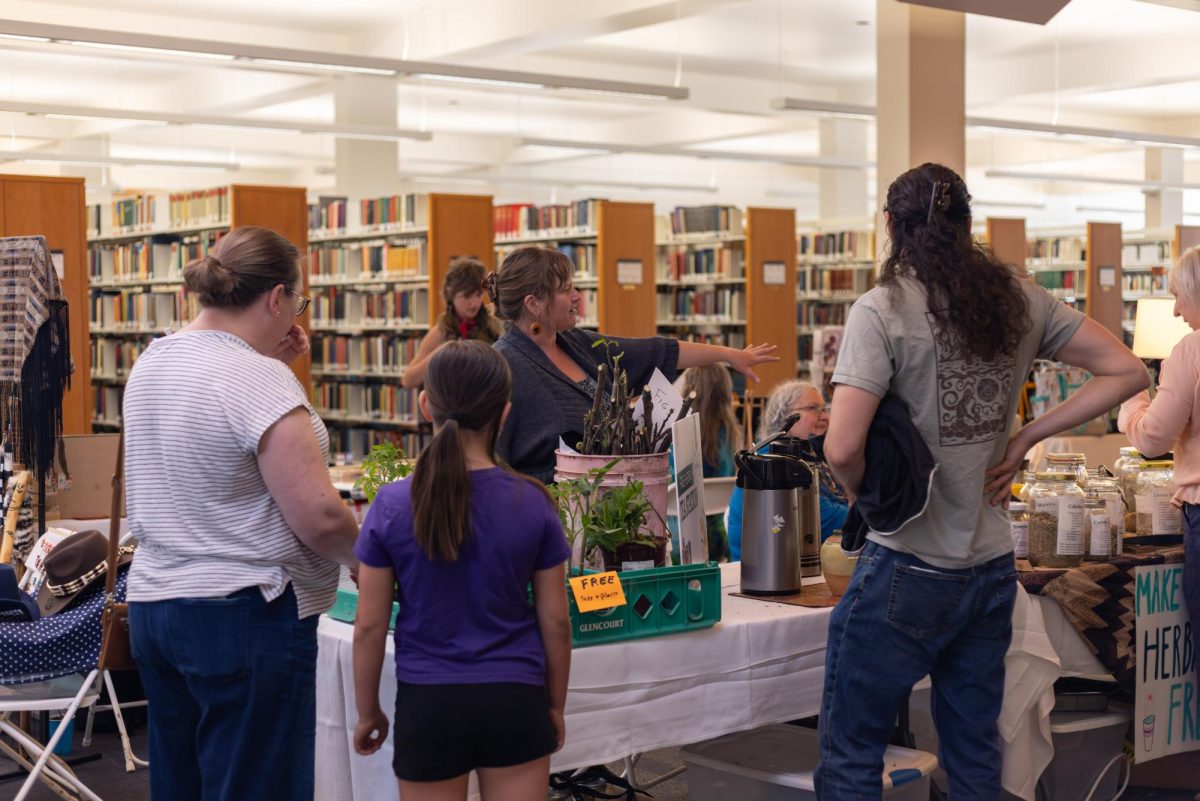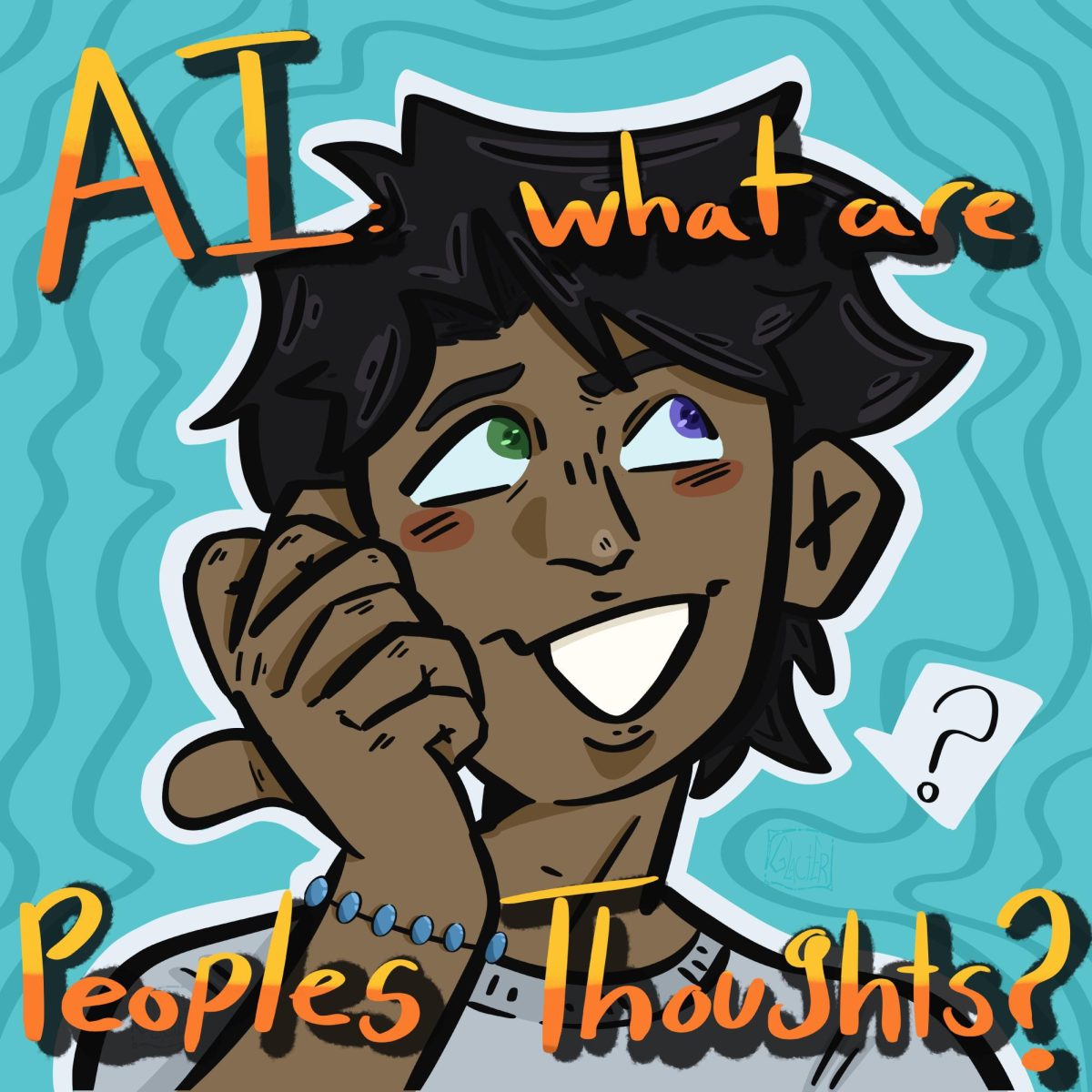Communication or perception by means other than the physical senses. This is how Linfield Activities Board’s performer, Craig Karges, introduced his performance Oct. 27.
As a mentalist, he explained the importance of extrasensory perception (ESP).
“Everything based in the mind is ESP,” Karges said.
For his first acts, he had a student from the audience look through a book and pick a word. Then Karges tried to guess the selected word. He wrote on a white board the word “photographer,” and then the student replied that his word was photograph. The audience was speechless.
Next, he put on a blindfold and asked a girl to bring up a Linfield photo I.D., which she did. He was able to describe the girl pictured in the I.D.’s smile, hair and earrings, followed by her name, only by holding it in his hand.
With the blindfold still on, Karges had a student put a metal spike under one of four Styrofoam cups. He was able to accurately tell which Styrofoam cup had a metal spike under it. At this point in the performance, many students had puzzled looks on their faces.
For his next act, he had people write down their name, birthday and a random word or phrase on a piece of paper, then hold on to it. He easily guessed a girl’s birthday and the word that she had chosen, “dolphin.”
A student had written down the phrase “Not Slytherin, not Slytherin,” which Karges guessed perfectly, as well as the phrase “Nerdy Star Trek guys.” After he guessed the phrases correctly, students were on the edge of their seats in amazement.
Perhaps one of his most astounding acts started with the phrase, “I am going to manipulate the block of wood.” He set a small block of wood slanted against a book. He walked away and began trying to move it. Sure enough, after about 10 seconds, the slanted block of wood sat up straight.
“He’s a witch,” an audience member yelled out.
Later, Karges brought up a student to help him move a wood table. With no magnets or glue, they were able to have the table move, levitate and float with only the tips of his fingers making contact with the top of the table. At one point Karges was holding the table with just the tips of his fingers of one hand. The audience was in pure astonishment.
He then called for four random students to describe their perfect car. The first student replied with a new Camaro. The second described its color as forest green. The third announced the license plate as MP171, and the fourth listed its price at $56,112.75. He then reached into his pocket, pulled out a note and had a random student read it aloud.
“Today I will visit Linfield College. I will ask for four students to describe a car. It will be a forest green Camaro, license plate MP171 and cost $56,112.75.”
The audience was left speechless by the identical descriptions.
For his last presentation, Karges had Dan Fergueson, director of college activities, bring up his check. He then put it in an envelope and put two random pieces of paper in two other identical envelopes. He had a student randomly number the envelopes and shuffle them behind his back. Then he had the student pick one envelope to hold on to.
Karges then put the other two envelopes through a portable paper shredder. He promised Linfield College that in the event that he had shredded his check, there would be no need for them to pay him. Finally, he had the student open the envelope and, in fact, his check was in it.
It was clear by the audience’s reaction that the show was a huge success. Some students were still skeptical of some of the acts, but there was no clear answer as to how they could be fabricated.
“During the whole show, I was thinking about the science behind his acts. It makes you rethink everything we know about the human conscience,” junior Stephanie Stovall said.
On the weekend before Halloween, the Linfield Activates Board succeeded in mystifying students with their performer.
“We use 10 to 20 percent of our mind. It is possible to communicate with our minds and see things without our eyes,” Karges said. “What capabilities do you hold with your mind? Technology is wonderful, but the most amazing computer is our mind, and it is only limited by your own imagination.”
Maddie Bergman






